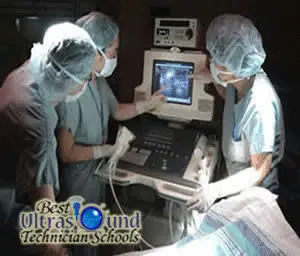Table of Contents
*This post may contain affiliate links. As an Amazon Associate we earn from qualifying purchases.
Becoming an ultrasound technician is a rewarding way to enter the healthcare industry. However, there are many different career paths within the field itself. Over time, ultrasound technicians tend to branch out into areas of sonography in which they are specifically interested.
Specialty Fields
Many people have a lack of knowledge about sonography as a healthcare field. They tend to think of its use in obstetrics and gynecology, where ultrasound technology is essential for diagnosing abnormalities in fetuses or determining the sex of a baby. However, sonography is used for diagnostic purposes in almost every part of the human body. There are several speciality sub-fields in which sonographers can work. The American Registry for Diagnostic Medical Sonographers provides credential examinations for musculoskeletal sonography, vascular interpretation and even pediatrics. After passing their certifying exams, newly licensed sonographers can practice in these areas at hospitals and clinics across the United States. Over time, they can become the head of the sonography department in which they work.
 Education
Education
After working in the field for a few years, some sonographers may decide to become educators. Their practical experience will help them as they train the next generation of ultrasound technicians. This requires at least a Master’s degree, if not a PhD, so interested sonographers should be prepared to return to school and work on highly advanced research projects. This will demonstrate their ability to absorb and analyze new information, which is critical if they want to go on to teach others. After their have finished their own schooling, sonography professors can teach at vocational schools, community colleges and even major universities.
Research and Entrepreneurship
Sonography is a rapidly growing field, and the technology that is used is always changing. Thanks to their extensive hands-on experience, ultrasound technicians can help medical research companies improve existing techniques and machinery. Research sonographers command significantly higher salaries than medical sonographers, but they are tasked with developing studies on current sonography practices and are expected to share their findings with other healthcare professionals at conferences. Their work will be essential as more and more hospitals rely on diagnostic medical imaging in order to treat patients quickly and painlessly.
Sonographers with an entrepreneurial spirit can begin working in medical sales. Their advanced knowledge of ultrasound machines makes them the perfect ambassadors for medical equipment manufacturers. These sonographers work closely with healthcare facilities in order to provide state-of-the-art technology that will improve the quality of care for all patients.

